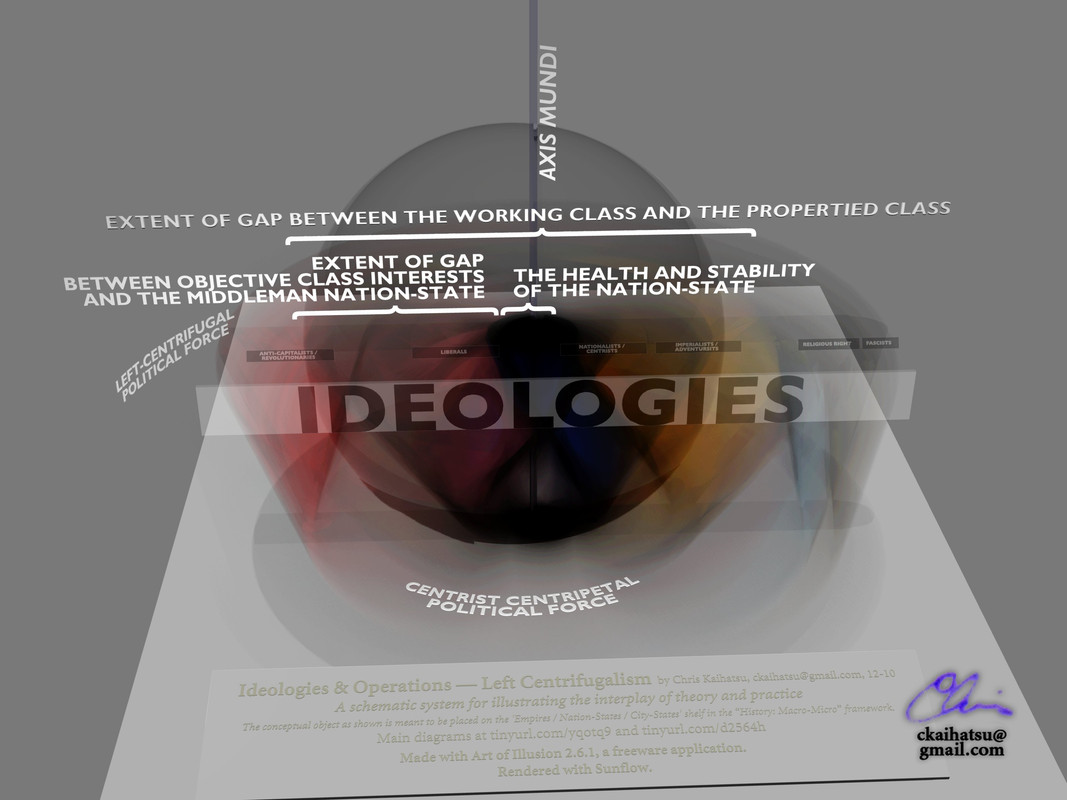- 29 Dec 2021 05:14
#15204933
The 'extreme' that you fail to include in your equation is the *status quo*, and its *income inequality* -- which you've given lip-service to in the past, but somehow don't think of as 'extreme', now. So you're a Panglossian since 'this is the best of all possible worlds', and you assume a 'perfect-world' attitude / formulation regarding the world today.
Ideologies & Operations -- Left Centrifugalism
Unthinking Majority wrote:
True.
What also sucks about communism and fascism is that ignorant people take it to mean that all forms of socialism or nationalism are bad. That's obviously ridiculous. Communism and fascism take these 2 things to an extreme. There isn't much in this world that isn't harmful when taken to an extreme. It's like seeing an obese person with diabetes and heart disease and drawing the conclusion that all food is bad for you and everyone should stop eating.
The 'extreme' that you fail to include in your equation is the *status quo*, and its *income inequality* -- which you've given lip-service to in the past, but somehow don't think of as 'extreme', now. So you're a Panglossian since 'this is the best of all possible worlds', and you assume a 'perfect-world' attitude / formulation regarding the world today.
Ideologies & Operations -- Left Centrifugalism
Spoiler: show










 - By JohnRawls
- By JohnRawls